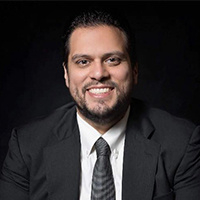 Natchez RICO Act Lawyers, Louisiana
Natchez RICO Act Lawyers, Louisiana
Sponsored Law Firm
-
 x
x

Click For More Info:
-
Babcock Trial Lawyers
10101 Siegen Ln #3-C Baton Rouge, LA 70810» view mapCriminal Defense We Want Your Injury Claim PAID NOW!
At Babcock Trial Lawyers, we work for our clients, maintaining our reputation of excellence as criminal defense & personal injury lawyers in Baton Rouge.
225-500-5000
Not enough matches for Natchez RICO Act lawyer.
Below are all Natchez Criminal lawyers.
Sponsored Lawyers
1-6 of 6 matches
Divorce & Family Law, DUI-DWI, Real Estate, Wills & Probate, Adoption
Wesley Bailey is a practicing lawyer in the state of Louisiana specializing in Divorce & Family Law. More about Wes Bailey: Managing Attorney for solo practice. Maintains a general practice based on trial and litigation in multiple fields (criminal, family, and civil law). Practices as a public defender for the 30th Judicial District Public Defenders office. Court-appointed child attorney for children deemed in need of care by the State of Louisiana. Admitted and practice in the Western District Federal Court of Louisiana. Admitted and practice in the Western District Bankruptcy Court of Louisiana. Federal Public Defender for Western District and Magistrate Court for Fort Polk Military base. Leads a competitive trial docket of at least three days per week in litigation matters.
(more)


 Stephen Babcock Baton Rouge, LA
Stephen Babcock Baton Rouge, LA Practice AreasExpertise
Practice AreasExpertise

